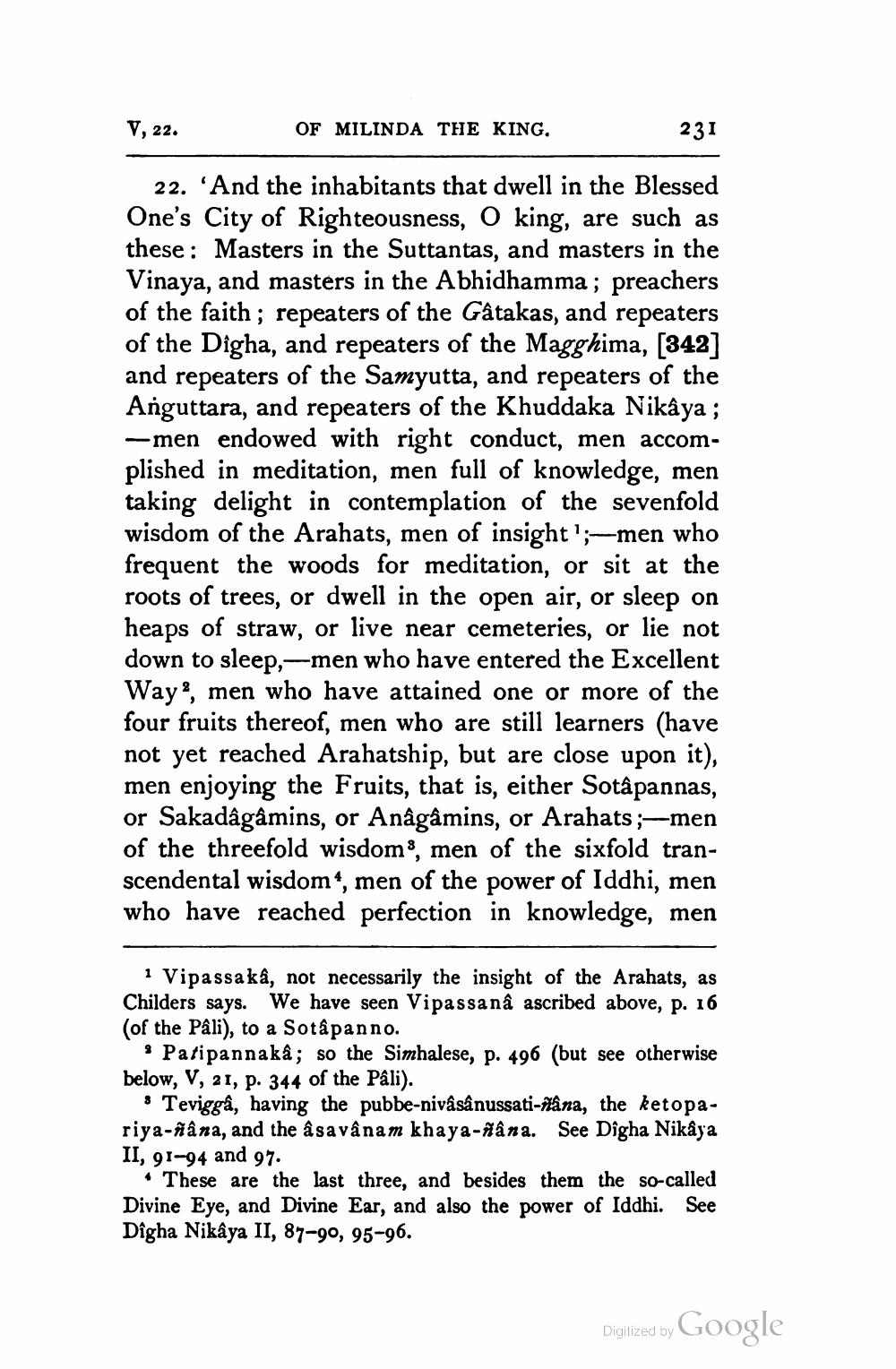________________
V, 22.
OF MILINDA THE KING.
231
22. 'And the inhabitants that dwell in the Blessed One's City of Righteousness, O king, are such as these: Masters in the Suttantas, and masters in the Vinaya, and masters in the Abhidhamma; preachers of the faith ; repeaters of the Gâtakas, and repeaters of the Digha, and repeaters of the Magghima, [342] and repeaters of the Samyutta, and repeaters of the Anguttara, and repeaters of the Khuddaka Nikâya ; - men endowed with right conduct, men accomplished in meditation, men full of knowledge, men taking delight in contemplation of the sevenfold wisdom of the Arahats, men of insight';-men who frequent the woods for meditation, or sit at the roots of trees, or dwell in the open air, or sleep on heaps of straw, or live near cemeteries, or lie not down to sleep,-men who have entered the Excellent Way", men who have attained one or more of the four fruits thereof, men who are still learners (have not yet reached Arahatship, but are close upon it), men enjoying the Fruits, that is, either Sotâpannas, or Sakadâgâmins, or Anâgâmins, or Arahats ;-men of the threefold wisdom, men of the sixfold transcendental wisdom, men of the power of Iddhi, men who have reached perfection in knowledge, men
1 Vipassa ka, not necessarily the insight of the Arahats, as Childers says. We have seen Vipassana ascribed above, p. 16 (of the Pâli), to a Sotâpanno.
• Patipannakâ; so the Simhalese, p. 496 (but see otherwise below, V, 21, p. 344 of the Pâli).
* Teviggâ, having the pubbe-nivâsânussati-tâna, the ketopariya-ñana, and the â savânam khaya-âna. See Digha Nikaya II, 91-94 and 97.
• These are the last three, and besides them the so-called Divine Eye, and Divine Ear, and also the power of Iddhi. See Dîgha Nikâya II, 87-90, 95-96.
Digitized by Google




